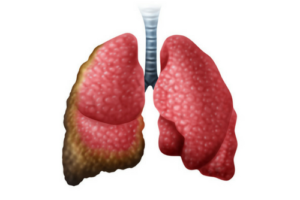January 17, 2018
Mesothelioma: The Stealthy Killer
By Jonathan Damashek
Posted in

The Mayo Clinic warns that while there are treatments for malignant mesothelioma, there is no cure. The Mesothelioma Cancer Alliance adds that this type of cancer is highly aggressive and the prognosis for people diagnosed with it is very poor. The Centers for Disease Control and Prevention reports that between 2,400 and 2,800 people are diagnosed each year with mesothelioma in the United States. How long they can be expected to live after diagnosis depends on the following three factors:
- Where the cancer is located
- What type of cell is involved
- What stage the cancer has reached prior to diagnosis
In addition, the patient’s age, overall health and whether the cancer has spread to other organs all are important factors impacting prognosis.
Types of Mesothelioma
There are four known kinds of mesothelioma:
- Pleural mesothelioma affects the pleura, the tissue surrounding the lungs.
- Peritoneal mesothelioma affects the peritoneum, the tissue surrounding the abdomen.
- Pericardial mesothelioma affects the pericardium, the tissue surrounding the heart.
- Tunica vaginalis testis affects the membrane lining the testes.
Mesothelioma Symptoms
One of the most frightening aspects of mesothelioma is that it usually take years for symptoms to appear after a person’s initial exposure to asbestos. It is not uncommon for mesothelioma to take 20 to 40 years to develop.
Pleural mesothelioma symptoms include:
- Pain in the chest under the rib cage
- Shortness of breath
- Painful coughing
- Unexplained weight loss
- Lumps under the skin of the chest
Peritoneal mesothelioma symptoms include:
- Abdominal pain and/or swelling
- Abdominal lumps
- Unexplained weight loss
Pericardial mesothelioma symptoms include:
- Dyspnea; i.e., breathing difficulties, even when resting
- Shortness of breath, even when lying flat
- Coughing and chest pain
- Fever and/or night sweats
- Fatigue
Tunica vaginalis testis is the most difficult form of mesothelioma to diagnosis because there are no unique symptoms. Some men notice a hydrocele; i.e., a fluid buildup in their scrotum. Others notice a scrotal lump. Still others notice pain and/or swelling in their testes. Often these men are misdiagnosed as having a hernia, and the correct diagnosis is not made until surgery is performed.
Those Most at Risk
Construction workers are most at risk for asbestos exposure and consequent mesothelioma because so many of the materials with which they come into contact contain asbestos. However, other workers also face a substantial risk, including the following:
- Factory workers
- Metal workers
- Insulation manufacturers
- Auto mechanics
- Miners
- Ship builders
- Power plant workers
Workers’ family members also are at risk. When a worker unknowingly brings home microscopic asbestos fibers on his clothes and shoes, they disperse throughout the house and everyone living there, including young children, breathes them in. This is why mesothelioma, a traditionally male-dominated cancer, is becoming more prevalent in women. The National Cancer Institute’s Surveillance, Epidemiology and End Results data from 1975-2014 show that women now account for approximately 25 percent of annual mesothelioma diagnoses.
Mesothelioma in New York
New York is the fifth ranking state when it comes to mesothelioma and asbestosis deaths. Between 1999 and 2015, nearly 2,400 New York residents died from mesothelioma. Part of the reason is that New York is considered to have originated the asbestos industry. The Johns-Manville Corporation began mining vermiculate for asbestos insulation in 1858, and there are 23 known asbestosis deposits and mines in New York.
Companies such as W.R. Grace, Lord Construction Company, and the Asbestos Construction Company all used asbestos extensively. In addition, New York’s docks and shipyards, including the Brooklyn Naval Shipyard, the Bethlehem Steel Shipyard on Staten Island, and the Brooklyn Division of the Todd Shipyards, used asbestos in building and repairing ships. Other shipyards on the shores of both Lake Erie and Lake Ontario did likewise. Power plants such as the Niagara Mohawk Power Corporation in Syracuse, the Ravenswood Generating Station in Queens, and the Arthur Kill Generating Station and Astoria Gas Generating Station on Staten Island are known for asbestos exposure.
All New Yorkers were exposed to asbestos fibers in the aftermath of 9/11. The Mesothelioma Center reports that over 4,000 tons of asbestos-containing dust and debris fell on New York City and surrounding areas when the Twin Towers came down.
SEER researchers predict that New York City will become a mesothelioma hotspot in coming years. People living in lower Manhattan immediately after the 9/11 tragedy and the heroic police officers, firefighters, paramedics, rescue workers and cleanup crews who worked on “the Pile” all had extraordinary exposure to asbestos. Given mesothelioma’s exceptionally long latency period of 20-40 years, it is virtually assured that mesothelioma diagnoses and lawsuits in New York City will increase as time goes on.